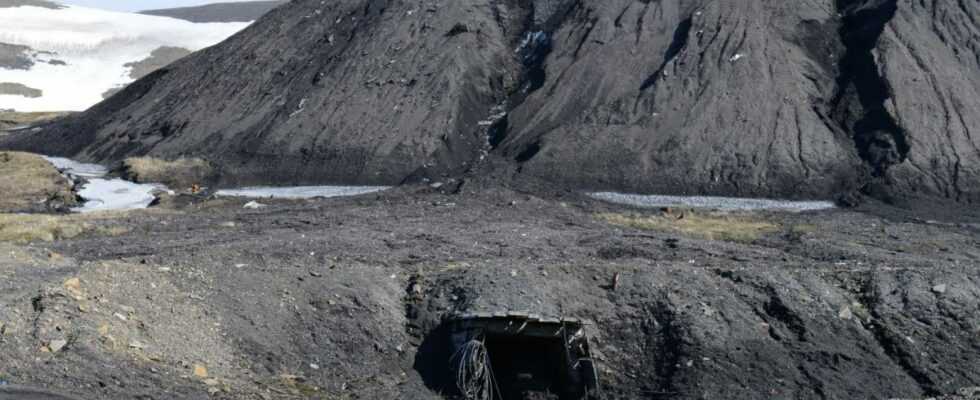The Europeans are preparing to include coal in the sanctions against Russia. So, doable? Russia is a hydrocarbon giant, and oil and gas revenues funded 45% of its federal budget last year, according to the International Energy Agency (IEA). Ukrainian President Volodymyr Zelensky has called on the EU to stop using it, because “Russia will no longer have money for this war”.
According to US energy statistics, Russia exported nearly 5 million barrels per day (mb/d) of oil in 2020, half of which to European countries (including Germany, Netherlands, Poland). The United States, a major energy producer, has decided on an embargo. But Europe is only considering it for the moment on coal, while saying it wants to reduce its purchases of Russian gas by two thirds this year.
Coal, replaceable
Russia holds 15% of the world’s coal reserves, according to BP’s annual energy report. It accounts for 45% of EU imports, with some particularly dependent countries, such as Germany and Poland, using it to produce electricity.
The trend in the EU is to move away from polluting coal: consumption fell from 1,200 to 427 million tonnes between 1990 and 2020. But at the same time, Europeans were closing their mines and becoming more dependent on imports, underlines the Bruegel Institute. However, Germany plans to do without Russian coal this fall. “Russian coal can be replaced because global coal markets are well supplied and flexible,” judge the Bruegel Institute. Other major producers are the United States (17.5% of hard coal imports from the EU today), Australia (16%), South Africa and Indonesia.
Oil, possible
Russia is the world’s largest oil exporter, supplying more than 25% of EU crude oil, according to European statistics. In the first half of 2021, Bulgaria, Slovakia, Hungary and Finland even found more than 75% of their supply there.
“In principle, replacing Russian oil would be easier than for gas,” because imports arrive by ship and not by fixed infrastructure like gas pipelines, notes Bruegel.
Experts also evoke a probable phenomenon of “communicating vessels”: Russian barrels would ultimately be sold in China, replacing barrels from the Middle East which would become available for Europe.
But Russia also exports 1.5 million barrels per day of diesel, which Europe is very fond of. “It will pose a real problem for diesel,” warned Barbara Pompili, Minister for Ecological Transition of France, which holds the rotating presidency of the EU. In the event of an embargo, it would therefore be necessary to find other sources of diesel, in addition to crude oil. TotalEnergies, for example, plans to import it from its refinery in Saudi Arabia.
Giving up gas, more expensive choice
Russia exports directly to Europe, in particular through a network of gas pipelines. With 155 billion cubic meters annually, it represents 45% of gas imports and almost 40% of EU consumption. The question of a possible embargo divides the European countries, because some are very dependent, like Germany, 55% of whose gas comes from Russia.
“Russian gas deliveries are not substitutable” and interrupting them “would harm us more than Russia”, argued German Finance Minister Christian Lindner on Monday.
Ten states (Bulgaria, Czechia, Estonia, Latvia, Hungary, Austria, Romania, Slovenia, Slovakia, Finland) were even more than 75% dependent on Russian gas last year, according to Eurostat.
The Baltic states stopped importing Russian gas in early April and are using their reserves. But by depriving itself of it completely, Europe would struggle to fill its storage for next winter.
Turning to other suppliers, particularly in the form of liquefied natural gas (LNG) arriving by ship, would only partially compensate, experts point out. It would also be necessary to reduce consumption, by limiting the production of certain industries for example. An embargo on Russian energy – including gas – would cost Germany between 0.3 and 3% of GDP, the French Economic Analysis Council has just calculated. And “Lithuania, Bulgaria, Slovakia, Finland or the Czech Republic may experience declines in national income of between 1% and 5%”, he estimates.
